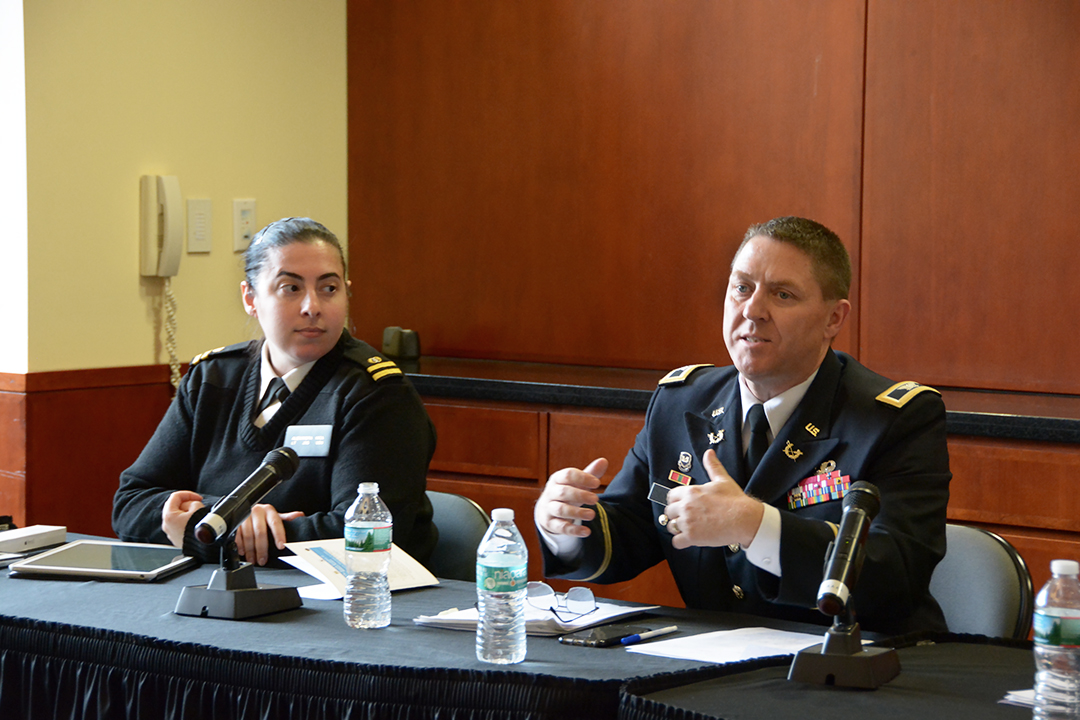This past fall, GW Law's National Security & U.S. Foreign Relations LLM Program, National Security Law Association, and Military Law Society co-hosted an event focused on the Fourth Evolution of Military Justice and the Military Justice Act of 2016. The event was also sponsored by the ABA Standing Committees on Armed Forces Law and Law and National Security, Criminal Justice Section, GPSOLO, and Military Lawyers Committee, as well as the National Institute of Military Justice, and Judge Advocates Association.
Last December, Congress passed and then-President Barack Obama signed, the Military Justice Act of 2016. This law made several important changes to the military justice system that will begin to take effect within the next two years, and it laid the groundwork for future adjustments to the system. The Act also updated many of the crimes in the Uniform Code of Military Justice.
U.S. Army Colonel (ret.) Patricia Ham (LLM, '03), a member of the Military Justice Review Group (MJRG), explained in her opening presentation regarding the legislative background of the Act that the bill grew out of a proposal from the MJRG. The bill eventually became a Department of Defense (DoD) proposal that was submitted to Congress in December 2015 and was enacted in December 2016. Experts gathered to speak about the legislation, which attempts to improve the effectiveness and efficiency of the military justice system without diminishing due process or good order and discipline throughout the military.
The event consisted of two panel presentations. The first, "Disposition: Offense through Trial," focused on issues surrounding Articles 32 and 33 and pre-trial agreements. Panelists included Colonel William Smoot, Chief, Criminal Law Division, U.S. Army OTJAG; Lieutenant Colonel Sara Root, Chief, Mobile Training Team MJA 2016, U.S. Army OTJAG; and Lieutenant (LT) Alexandra Nica, Navy JAGC, Criminal Law Division, OJAG.
Panelists of the second presentation, "Sentencing: Members, Judge Alone, and Sentencing Standards" spoke about the sentencing scheme and appellate review. The Act changed the procedures available for determining the sentence for a service member convicted of a crime. The panel included Colonel Pete Yob, Special Victim Program Manager, U.S. Army OTJAG; Lieutenant Colonel Jay Thoman, Chief, Criminal Law Policy Branch, U.S. Army OTJAG; and LT Alexandra Nica. The panels were moderated by David A. Schlueter, Professor of Law at St. Mary's University School of Law.
Closing remarks came from Eleanor Vuono, a member of MJRG, who spoke about transparency and the DoD pacer-like system, which allows records from federal court cases to be made available online.


